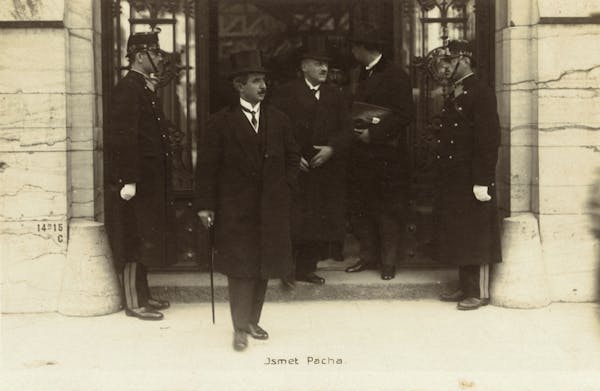by OZAN OZAVCI

In the 1950s, Atilhan and K?sakürek argued that the Lausanne treaty was a Jewish plot, masterminded by Chief Rabbi Haim Nahum, a consultant of the Turkish delegation at Lausanne. Their conspiracy theory set out how the 1923 treaty represented a major defeat for Turkey, not only for the territorial and economic losses it inflicted through its known and “secret” clauses. By paving the way for the abolition of the Caliphate in March 1924 it also weakened Turkish society morally, upending the “unity and consciousness of Islam”.
Why conspiracy theories take hold
But Lausanne conspiracy theories are not merely the product of indifference to historical realities or even the way history is taught in Turkish schools, where a dominant narrative hampers critical thinking. There are also structural factors at play.
Social psychology teaches us that conspiracy theories gain traction in times of societal crisis –something that Turkey hardly lacks. It’s not so much the dire economic and political (read dictatorial) conditions to which the country is currently being subjected.
It’s rather a long-term syndrome it has suffered over the past few centuries; a syndrome that has left Turkey, and before it the Ottoman empire, dangerously prone to even the most outlandish conspiracy theories.
Especially after Russia invaded Crimea, then part of the Ottoman empire, and annexed the territory outright a decade later in the 1780s, a syndromic era unfolded in Turkish history. It became evident that the Ottoman empire could no longer match the military and technological power of its Romanov rivals, nor that of the other major European powers.
This relative weakness spawned what would eventually be termed the eastern question. Should this semi-civilised “oriental empire” be partitioned or left intact? Should the European powers fight over its spoils or negotiate some settlement to share them out among themselves?
From an Ottoman perspective, the eastern question indicated a continual paradox: the existence of their empire depended on the support of the same European powers which posed the greatest threat to its territorial integrity.
The Conversation for more
